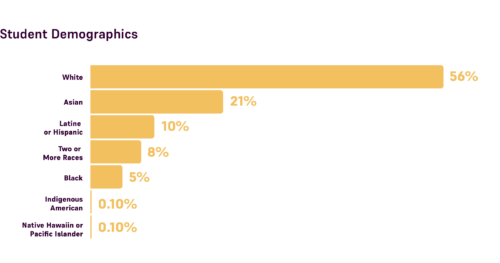Getting Started with UnboundEd
During the 2023–24 school year, Newton Public Schools (NPS) began implementing a new elementary literacy curriculum, published by EL Education, for kindergarten through fifth grade across four schools.
NPS, a high-performing district, understood the importance of and support needed for a successful curriculum launch, so they partnered with UnboundEd. Together, they provided additional implementation support to four K–5 schools and worked to ensure consistency and accountability within the curriculum implementation plan.
| Newton Public Schools Overview | |
|---|---|
| Number of Schools: | 23 |
| Grade Span: | Pre-K–12 |
| Total Enrollment: | 11,717 |
| Multilingual Learners: | 6.7% |
| Students Receiving Special Education Services: | 17.8% |
| Students Eligible for Free and Reduced Price Lunch: | 15% |

A Glimpse into Our Partnership
NPS prioritized consistency while creating the structures necessary to implement high-quality instructional materials (HQIM) successfully. With support from UnboundEd, NPS set clear district and campus expectations around ongoing professional learning for teachers within the curriculum.
Instructional leaders gained knowledge and participated in professional learning to understand the instructional design of the materials, and to observe classrooms for effective implementation.
UnboundEd’s district and campus Action Step Planning Process ensured that NPS remained accountable throughout its implementation. We prepared the district to collect data from walks and supported them as they used that data to identify trends, gaps, and next steps. The district used data collected during classroom observations to identify trends and gaps within implementation and to create high-leverage actionable next steps.
Through these high-leverage practices NPS learned how to maximize the implementation of the EL curriculum. Campus leaders and teachers created conditions within their buildings and classrooms that centered and elevated students’ experiences, cultures, and sense of belonging, leading to academic growth for all students.

UnboundEd’s process of scaffolding the work to develop a problem of practice and then providing and getting feedback on said problem of practice was invaluable.
Rebecca Brogadir, Principal, Ward Elementary SchoolImpact
Leaders Leverage Problems of Practice to Monitor and Improve Curriculum Implementation
NPS’s district and campus leaders developed problems of practice to better understand what was happening in classrooms. UnboundEd engaged leaders in a discussion about aligning their efforts to implement HQIM with their campus improvement plans. Campus leaders analyzed their problems of practice for areas of strength and growth to align their professional goals with the problems of practice and school improvement goals.
The Campus Team Strengthens Its Ability to Support Effective Literacy Instruction
NPS identified specific challenges within their classrooms and engaged with UnboundEd to address them. They first assessed their implementation of high-quality instructional materials and then created problems of practice. This approach ensured that instructional practices were well-supported and would ultimately improve student outcomes, which created a structured pathway for continuous improvement.

Unpacking the instructional design more fully allowed me to begin conversing with teachers about their curriculum implementation and strengthen our capacity as instructional leaders.
Jennifer Lindstrom, Literacy Specialist, Newton Public SchoolsPartner Insights
Three key learnings from NPS’s journey yielded important insights for other districts.
1. Conducting classroom walkthroughs is essential for gathering qualitative and quantitative data about classroom implementation status. This data informs district and campus leaders about refining teacher planning time and creating district-wide expectations for effective literacy instruction.
2. UnboundEd’s Integrity Walk tool helped to develop a common language around curriculum and instructional expectations within NPS. District and campus leaders leveraged this common language to create a lesson internalization document. Campus grade-level literacy teams used this document to provide a framework for teachers to approach a deeper understanding of the expectations of the adopted literacy HQIM to ensure more students consistently received Tier 1 instruction.
3. In collaboration with UnboundEd, each campus principal strengthened their instructional lens. This lens helped principals provide feedback and identify the strongest instructional moves a teacher would need to make to improve their instructional delivery quickly. Campus literacy specialists supported teachers as they successfully implemented feedback from their principals.
